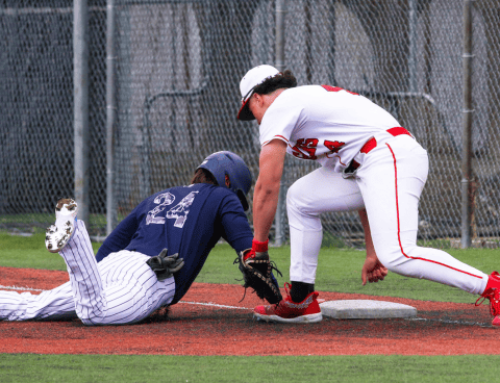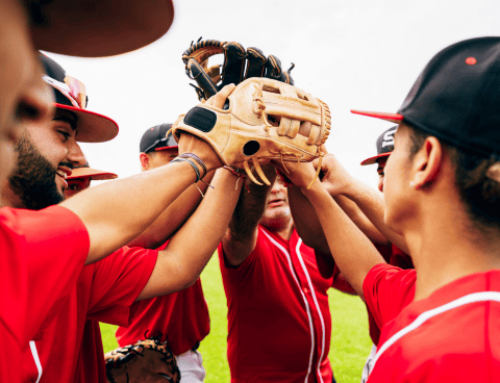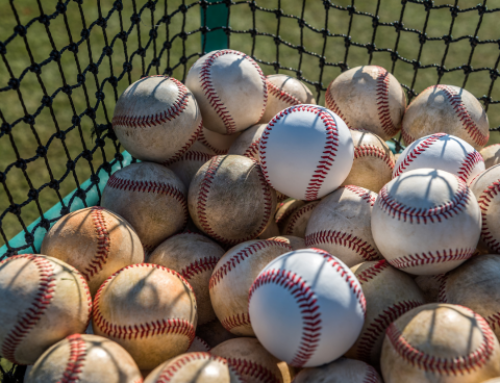The Best Supplement for Increasing Baseball Power
Baseball has gotten a bad reputation in recent years due to performance-enhancing drug use among some players. Barry Bonds, Mark McGwire and Ryan Braun all allegedly used steroids and HGH. But there are some perfectly legal supplements, including creatine, that don’t cause long-term damage to the body.
Benefits
A naturally occurring substance in the body, creatine, when combined with a healthy diet, causes muscles to hypertrophy (increase in volume) and boosts power production. In my opinion, creatine is the gold standard for supplements, having been proven effective in hundreds of clinical studies.
Baseball is a power game, played with short bursts of anaerobic energy. It’s not a game of muscular endurance. Because of the sport’s specific demands, creatine’s power-generating capabilities are great for college-age and mature baseball players. Young and still-growing high school athletes should educate themselves before beginning to use creatine, because its effects on growth have not been fully studied. (Learn more about creatine and high school athletes.)
Besides generating power and muscle, creatine also allows the body to recover more quickly from intense activity. During the season, it can be hard to get to the gym, but you don’t want to lose the strength gains you made in the off-season. Full-body workouts twice a week, with a creatine supplement, can help you maintain your off-season strength gains.
Taking Creatine
When you first start taking creatine, you must do a loading phase, during which you’ll take 20 grams a day for the first week. After that, you can take five grams a day. During the loading phase, you should increase your carbohydrate intake so your body can more easily absorb the supplement.
A small percentage of people have negative side effects from creatine. Some people feel bloated, because creatine can cause water retention, and others feel like they have gas. Some also report muscle cramping. When you first experiment with creatine, make sure to do so during the off-season. If it hurts your performance or you experience side effects, don’t take it.
Creatine is the one supplement I would recommend for older baseball players. But, before diving into creatine—or any supplement—read “How to Select Safe Supplements” and “Five Questions to Ask Before Choosing a Supplement”.
Photo: ctpost.com
Joe Lopez, CSCS, works with many different athletes at Pope John XXIII Regional High School in Sparta, N.J. His expertise is in track and field, baseball and golf. He has worked as a personal trainer for more than seven years. Follow him online at jerseystrong.wordpress.com or on Twitter.
RECOMMENDED FOR YOU
MOST POPULAR
The Best Supplement for Increasing Baseball Power
Baseball has gotten a bad reputation in recent years due to performance-enhancing drug use among some players. Barry Bonds, Mark McGwire and Ryan Braun all allegedly used steroids and HGH. But there are some perfectly legal supplements, including creatine, that don’t cause long-term damage to the body.
Benefits
A naturally occurring substance in the body, creatine, when combined with a healthy diet, causes muscles to hypertrophy (increase in volume) and boosts power production. In my opinion, creatine is the gold standard for supplements, having been proven effective in hundreds of clinical studies.
Baseball is a power game, played with short bursts of anaerobic energy. It’s not a game of muscular endurance. Because of the sport’s specific demands, creatine’s power-generating capabilities are great for college-age and mature baseball players. Young and still-growing high school athletes should educate themselves before beginning to use creatine, because its effects on growth have not been fully studied. (Learn more about creatine and high school athletes.)
Besides generating power and muscle, creatine also allows the body to recover more quickly from intense activity. During the season, it can be hard to get to the gym, but you don’t want to lose the strength gains you made in the off-season. Full-body workouts twice a week, with a creatine supplement, can help you maintain your off-season strength gains.
Taking Creatine
When you first start taking creatine, you must do a loading phase, during which you’ll take 20 grams a day for the first week. After that, you can take five grams a day. During the loading phase, you should increase your carbohydrate intake so your body can more easily absorb the supplement.
A small percentage of people have negative side effects from creatine. Some people feel bloated, because creatine can cause water retention, and others feel like they have gas. Some also report muscle cramping. When you first experiment with creatine, make sure to do so during the off-season. If it hurts your performance or you experience side effects, don’t take it.
Creatine is the one supplement I would recommend for older baseball players. But, before diving into creatine—or any supplement—read “How to Select Safe Supplements” and “Five Questions to Ask Before Choosing a Supplement”.
Photo: ctpost.com
Joe Lopez, CSCS, works with many different athletes at Pope John XXIII Regional High School in Sparta, N.J. His expertise is in track and field, baseball and golf. He has worked as a personal trainer for more than seven years. Follow him online at jerseystrong.wordpress.com or on Twitter.












